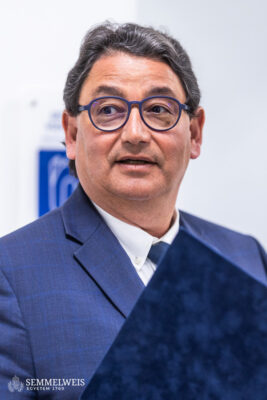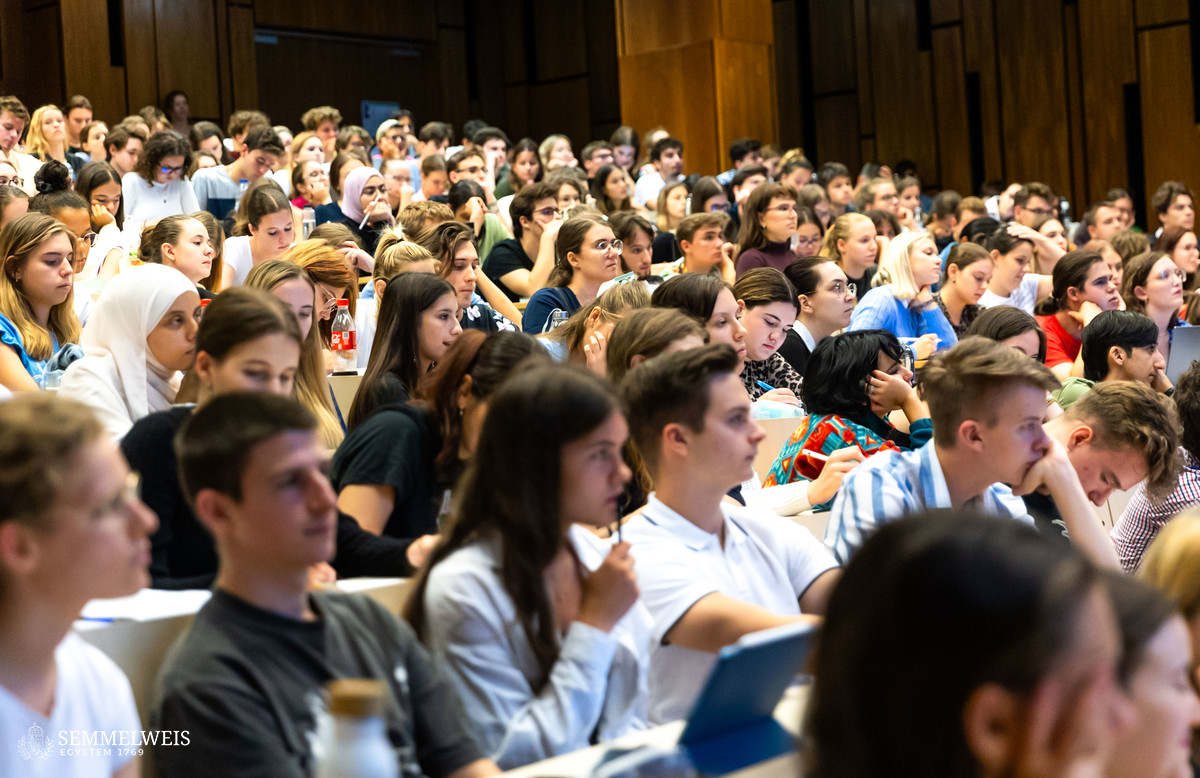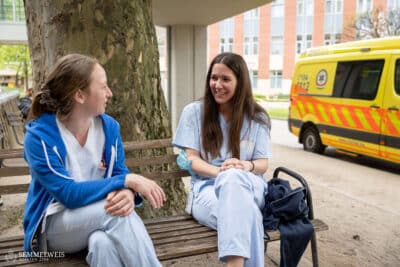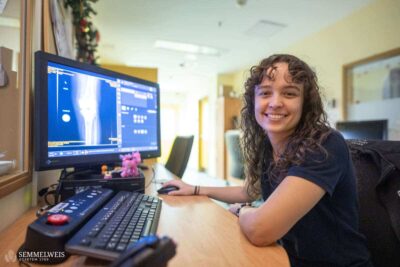In 2015, the UN adopted its Sustainable Development Cooperation Framework, which aims at balanced societal development, stable economic growth, and environmental protection, identifying 17 areas for development, known as Sustainable Development Goals (SDGs). The third SDG of the 2030 Agenda is to ensure healthy lives and promote well-being for all at all ages.
The forum, organized in collaboration between Semmelweis University and Times Higher Education (THE), will focus on health and well-being, with more than thirty experts from leading higher education institutions and professional organizations, including Semmelweis University, Karolinska Institute, KU Leuven, the University of Cologne, the University of Manchester, the University of Nottingham, the University of Copenhagen, the Medical University of Innsbruck, Sapienza University of Rome, the National University of Singapore, EUniWell, Women in Global Health, and the RCSI University of Medicine and Health Sciences, which is placed 5th in THE’s 2024 Impact Rankings.
 The first panel will be moderated by Semmelweis University’s rector and conference patron Dr. Béla Merkely. The roundtable discussion will explore what higher education institutions can do to address major future health challenges, drawing on the experience acquired during the coronavirus pandemic. Experts will analyze the impact COVID has had on teaching clinical subjects, and based on this, how universities can work with decision-makers to manage the needs of stretched healthcare systems and ensure sustainable community health.
The first panel will be moderated by Semmelweis University’s rector and conference patron Dr. Béla Merkely. The roundtable discussion will explore what higher education institutions can do to address major future health challenges, drawing on the experience acquired during the coronavirus pandemic. Experts will analyze the impact COVID has had on teaching clinical subjects, and based on this, how universities can work with decision-makers to manage the needs of stretched healthcare systems and ensure sustainable community health.
As Rector Dr. Béla Merkely emphasized, Semmelweis University was not only Hungary’s largest healthcare provider but also the most outstanding university in Hungary and the region, being unique worldwide as a medical and health sciences university. The excellence of its students, researchers, and faculty is demonstrated by the fact that THE’s most recent ranking places the institution in the top 300, making it the best not only in Hungary but also in Central and Eastern Europe. The rector noted:
As a leading university that trains the doctors and health professionals of the future, our mission is to improve people’s well-being and to protect and serve health. We understand well that the key to excellence lies in our human resources, and it is the community built by our students and staff that makes our university great. That is why I am particularly pleased that out of the UN Sustainable Development Goals, the forum will focus on good health and well-being.
Referring to the topic of the session, he also pointed out that Semmelweis University, in accordance with its role and prestige, made progress during the coronavirus epidemic in terms of vaccinations, patient care, and outreach. He stressed that the university was also committed to prevention, developing healthcare, and improving the quality of life in Hungary. He underlined that one of the top priorities of Hungary’s EU Council presidency was to combat cardiovascular diseases and to increase the number of organ transplants, in which Semmelweis University was expected to play a key role as a flagship in both fields at the national and regional level.
The conference will also feature sessions on the role of artificial intelligence and innovative technologies in healthcare and clinical training. It will analyze possible ways to address the declining workforce and inequalities in the context of economic and political challenges. The section on students’ mental health will also explore how students can be supported through the academic pressures of university. The roundtable on intercultural cooperation will focus on how university partnerships can improve research and health innovations and address domestic health challenges. The forum will also focus on women’s health and the role of women in healthcare, looking at how innovations can stimulate improvements in health outcomes for women and how women’s voices can be elevated in health R&D.
The English-language conference is expected to attract participants from 55 countries on 6 continents, with the largest number of attendees coming from the UK, Germany, Pakistan, and Turkey.
Participants are invited to book their tickets to this free event by August 31.
Originally published as a supplement to The Times newspaper, Times Higher Education has been providing news and analysis on higher education since 1971. In addition to its annual global and subject university rankings published for the 20th year running, THE regularly organizes summits, forums, and symposia on the future of higher education governance, innovation, and research, involving global thought leaders and influencers from higher education, governance, and industry. THE’s Global Sustainable Development Forum series explores how universities can channel their education, research, and innovation outcomes towards the goals set by the UN. Since 2019, Times Higher Education has devoted its Impact Rankings to higher education institutions that excel in this area.
Judit Szabados-Dőtsch
Photos (illustration) by Bálint Barta, Attila Kovács – Semmelweis University; Times Higher Education




